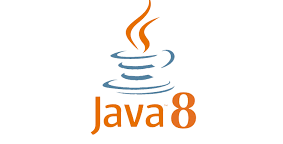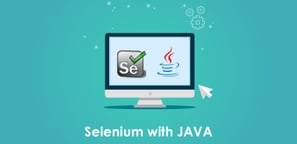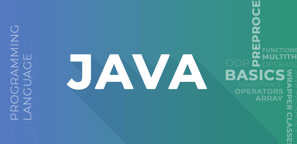JAVA Training in Mettur
Learn Java training in Mettur with Certification & Placements.
Java Developer's are in high demand. Learn Java Programming Language from Beginner to Advanced level exclusively designed with practical, real-time Scenarios for meeting the purpose of the Industry Demands. Best Course Content with hands-on Java Course in Mettur for Assured Placements
Master Program
60 hours of instructor led online class
Learn from leading industry experts.
Practical exercises to supplement theoretical learning
Projects to get immense hands-on experience.
Get Free E-learning Access to all courses
We are the leading Java training institute in Mettur providing classroom and online training by having training center.
60+ Hrs
Hands on Training
2 Live
Projects for hands-on learning
50 Hrs
Practical assignments
24/7
Lifetime access to support team
Best Java Training Institute in Mettur, 100% Job Oriented Course in Mettur
Attend & Decide after a Free Demo Class in Mettur with our Real Time Java Experts.
Call us for Mettur Center: +91 86678 73893 and Become an Java Expert,
JIJ Technologies was recently awarded the best Java Training Institute in Mettur by CEO of top it companies!.








Complete Java SE 8 Developer Bootcamp - OCA Prep Included
Selenium Java training courses equip individuals with the skills to automate web application testing using Selenium WebDriver and the Java programming language
The Complete Android & Java Developer Course
Create their very own android applications from scratch! Understand the concepts and techniques used in creating applications.
Java Programming: Complete Beginner to Advanced
This Java course dives into the basics of machine learning using an approachable, and well-known programming language, Python.
Selenium with Java training
Selenium Java training courses equip individuals with the skills to automate web application testing using Selenium WebDriver and the Java programming
Core Java developer Training Topics
JavaServer pages (JSP) and servlets
Web frameworks (e.g., Struts and Spring)
Service-oriented architecture/web services (SOAP/REST)
Web technologies like HTML, CSS, JavaScript, and JQuery
Markup languages like XML and JSON
Object-oriented programming (OOP) concepts and patterns
Abstract classes and interfaces
Constructors
File IO and serialization
Collections: lists, maps, sets
Access specifiers
Exceptions (checked and unchecked)
Generics
Java keywords: static, final, volatile, synchronized, transient, this super, etc.
Java virtual machine (JVM) and memory management
Multithreading and synchronization
Dependency injection
Topics Covered in our Advance Java Training
Jenkins Day-2 Password is ProjectDec2020
AI and machine learning
Blockchain
Python
Amazon Web Services
Hadoop/Big Data
Mobile technologies (Android or OS)
Advanced JavaScript framework (e.g., Angular, React, VueJS)
Spring Boot/microservices
Skip to contentIntroduction to Java
Java is a powerful, high-level, object-oriented programming language developed by Sun Microsystems (now owned by Oracle Corporation). It is widely used for building applications ranging from enterprise software to mobile apps, web applications, and even embedded systems.
Java follows the “Write Once, Run Anywhere” (WORA) principle, meaning that Java programs can run on any system with a Java Virtual Machine (JVM), making it platform-independent.
Key Features of Java
1. Platform Independence
Java code is compiled into bytecode, which can be executed on any system with a JVM, regardless of the underlying operating system.
2. Object-Oriented Programming (OOP)
Java follows the principles of Encapsulation, Abstraction, Inheritance, and Polymorphism, making it modular, reusable, and scalable.
3. Automatic Memory Management
Java has an automatic garbage collector that manages memory allocation and deallocation, reducing memory leaks and improving efficiency.
4. Multithreading Support
Java allows multiple threads to execute simultaneously, enabling better performance for concurrent applications.
5. Security and Robustness
Java provides built-in security features, such as bytecode verification, exception handling, and access control, making applications more reliable.
6. Extensive Libraries and APIs
Java comes with a rich set of built-in libraries for networking, file handling, database connectivity, GUI development, and more.
Java Editions
Java is divided into different editions to cater to various development needs:
1. Java Standard Edition (Java SE)
Provides core Java libraries and functionalities.
Used for building desktop and console applications.
2. Java Enterprise Edition (Java EE) (Jakarta EE)
Includes APIs for web services, security, and distributed computing.
Used for building enterprise-level applications.
3. Java Micro Edition (Java ME)
Designed for mobile and embedded systems.
4. JavaFX
Used for building rich graphical user interfaces (GUI).
Java Architecture
1. Java Virtual Machine (JVM)
The JVM is responsible for executing Java bytecode. It provides memory management, garbage collection, and security.
2. Java Runtime Environment (JRE)
The JRE includes the JVM and libraries required to run Java applications.
3. Java Development Kit (JDK)
The JDK includes the JRE, compiler, and development tools, allowing developers to write and compile Java code.
Core Java Concepts
1. Object-Oriented Programming (OOP) Principles
Java is based on four OOP principles:
Encapsulation – Hides implementation details from users.
Abstraction – Focuses on essential features, ignoring unnecessary details.
Inheritance – Allows a class to inherit properties from another class.
Polymorphism – Enables a single interface to be used for different types.
2. Java Data Types
Java supports different data types, including:
Primitive Types – Integer, Float, Double, Boolean, Char, etc.
Reference Types – Objects, Arrays, Strings, etc.
3. Exception Handling
Java provides a robust mechanism to handle runtime errors using try, catch, finally, and throw statements.
4. Multithreading
Java allows running multiple tasks simultaneously, improving performance in complex applications.
5. Java Collections Framework (JCF)
JCF provides dynamic data structures such as Lists, Sets, Maps, and Queues, making it easier to manage large amounts of data.
6. File Handling
Java provides built-in libraries for reading, writing, and manipulating files, making data storage and retrieval efficient.
Java Ecosystem and Tools
1. Java IDEs (Integrated Development Environments)
Eclipse – Popular for enterprise and large-scale development.
IntelliJ IDEA – Preferred for its advanced features and smart code suggestions.
NetBeans – Open-source IDE with built-in support for Java EE.
2. Java Frameworks
Spring Framework – Used for enterprise applications.
Hibernate – Object-relational mapping (ORM) framework for database management.
Struts – Web application framework for building Java-based web apps.
3. Build Tools
Maven – Used for project dependency management.
Gradle – A flexible and modern build automation tool.
Applications of Java
Java is widely used across industries for:
Web Development – Java EE, Spring Boot.
Mobile Development – Android apps using Java.
Enterprise Applications – Banking, finance, and ERP systems.
Big Data & Cloud Computing – Hadoop, Apache Spark.
Game Development – LibGDX, jMonkeyEngine.
IoT & Embedded Systems – Smart devices and automation.
Conclusion
Java remains one of the most popular programming languages due to its stability, performance, and versatility. Whether you’re building desktop applications, web services, or enterprise solutions, Java provides the necessary tools and frameworks to develop scalable and robust software.
Overview
Interested in Java course? CONTACT US
Get FREE Demo Class Now
Empower
Shaping futures through practical tech education.
Careers
Growth
+91 86678 73893
© 2025. All rights reserved.
Quick links